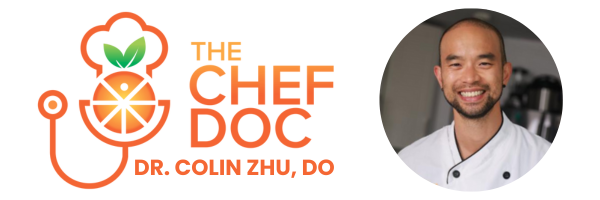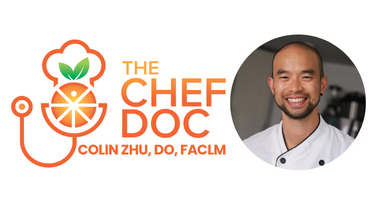What Is A Whole-Food Plant-Based Diet (WFPB)? A Complete Guide For Newbies
So, you've heard about this whole plant-based thing? And as the term implies, it's all about loading up on foods that come straight from the earth, with no added animal products or processed junk. And yeah, it might sound a bit daunting at first. Who wouldn't miss their burgers and pizzas?
But trust me, diving into a whole-food plant-based (WFPB) lifestyle is worth it. Sure, it is a bit of a shift from the processed stuff we're used to, but it's a game-changer for your health.
Alright, let's break it down. When we talk about WFPB, we're talking about keeping it real with what you eat. Think fruits, veggies, whole grains, nuts, and seeds – all in their whole intact & unprocessed glory. No funky additives or mystery ingredients here. And the best part? You are nourishing your body with the good stuff, the stuff that is packed with nutrients and goodness straight from nature that are essential for your body.
Now, if you're new to this whole plant-based movement, don't worry. I've got your back. This article is your crash course, your beginner's guide to understanding what is a whole food plant-based diet and how it can work wonders for you. So, let's get into it.
What is WFPB?
Whole-foods plant-based (WFPB) eating is all about keeping it simple and wholesome. It's about ditching the overly processed stuff and opting for foods that are as close to their natural state as possible.
When we say "whole foods," we mean foods that are minimally processed or unprocessed – no added sugars, preservatives, or artificial flavors. Just pure, unadulterated goodness from Mother Nature.
And "plant-based"? Well, that's exactly what it sounds like. We're talking about foods that come from plants or are plants – fruits, green leafy veggies, starchy vegetables, legumes, grains, nuts, and seeds. No animal products are allowed as much as possible. When we use vegan, the original definition refers to avoiding all forms of animal products, foods, and exploitation. The issue with this is I am unable to discern what you consume. You can eat a Twinkie and call yourself a vegan. Therefore, at TheChefDoc, we will use whole- foods plant-based wherever possible.
So, why go with WFPB? Well, for starters, you'll be doing your body a huge favor. By fueling up on nutrient-rich plant foods, you'll be giving your body the vitamins, minerals, phytonutrients, fiber, and antioxidants it needs to thrive.
But that's not all. A WFPB diet has also been linked to a whole host of health benefits, including lower risk of heart disease, diabetes, and certain types of cancer. Plus, it's great and sustainable for the planet and animals too.
So Why Start Now?
Let me tell you, diving into a plant-based lifestyle is like giving your body the ultimate upgrade. Seriously, it's one of the most powerful ways to supercharge your health – both inside and out. Modifiable lifestyle risk factors - smoking, unhealthy diet, and physical inactivity - result in the majority of our chronic disease burden including but not limited to heart disease, stroke, diabetes, pulmonary disease, metabolic disease, and some types of cancer. By 2030, the proportion of global deaths due to chronic diseases is expected to increase to 70 percent.
Let's talk about weight management. About 72% of Americans are classified overweight and 40% are classified obese. One of the coolest things about going plant-based is that you tend to shed those extra pounds without even trying due to the process of nutritional and caloric density. I mean, who doesn't want that? You'll find yourself feeling leaner and more confident, without having to obsess over calorie-counting.
But the benefits don't stop there. Plant-based eating is like a shield against chronic diseases. Seriously, it's like your own personal superhero protecting you from diabetes, obesity, and heart disease – just to name a few. Studies show that folks on a plant-based diet are way less likely to have second heart attacks compared to those on a regular diet. Now that's some powerful stuff right there.
And let's not forget about the planet. By choosing plant-based foods, you're not only doing your body good, but you're also doing Mother Earth a solid. It's like a win-win situation. Plus, it encourages you to get creative with your meals. Ever thought about starting your home garden or growing your herbs? It's all part of the plant-based lifestyle, baby.
But perhaps the best part of all this is the way you feel. With all that extra energy coursing through your veins and fewer toxins weighing you down, you'll feel like a whole new person. And the best part? You'll be stacking the odds in your favor for a longer, happier life. Who wouldn't want that?
Know that a plant-based diet offers so many benefits to your body. It is one of the most powerful ways to improve your overall health, prevent chronic diseases, and optimize your physical and believe it or not, your emotional and mental health!
How to Get Started
Having a whole-food plant-based lifestyle refers to having plants as a majority of what you eat would be a great first step. This means avoiding/minimizing animal products or refined foods and paying special attention to food quality and nutritional density.
But for some people, the WFPB diet is not just a diet. It's a lifestyle. It's a change not only with what you eat but your viewpoint on the food itself. This could be a life-changing switch for you!
If you want to get started on your plant-based journey, then you need to know the basics. If you have come this far in the article, then you already know the definition and benefits of WFPB. However, what does it include? And how can you create a meal based on that diet
1. Know what you CAN eat. For starters, you can eat different types of food belonging to these categories:
Fruits
Vegetables
Beans
Legumes
Grains
Nuts
Seeds
Herbs/spices
Take note that some vegetables may have varying ratios of fat, calories, or other nutrients than others. Still, it is important to pay attention to the fruits and vegetables you are eating and do extra research before adjusting on your next grocery run. Then learn how to reorient yourself to your kitchen, pantry, fridge, and freezer. To be more successful and sustainable, you need preparation and outfitting yourself to the best environment.
“Your health starts in your kitchen.”
2. Ask an Expert. Not all of the information you find on the internet is reliable. It is ideal to find experts you can trust to verify the facts about a plant-based diet. Check with your plant-based primary care physician, registered dietician, or health coach, Here at TheChefDoc, we strive to curate the best available evidence-based information for you to arm yourself with the right education and tools. Check out our downloadable resource page or contact us for a more specific question here.
3. Create Gradual Changes for the Better. Do you want to get started? Breaking habits and building new ones can be hard for anyone. Our motto here at TheChefDoc is “Strive for 1% better than yesterday.” We are constantly conditioned to want to climb Mount Everest but do not relish in the “anthill-sized” victories. Healthy living is a marathon and not a sprint. It takes patience, grace, curiosity, and lots of learning!
Thrive here and now! If you found this article insightful, we'd love to hear your thoughts! What aspects resonated with you the most? Please share your comments below.
About the author:
Dr. Colin Zhu, Board-Certified in Family Practice and Lifestyle Medicine, is a plant-based chef and health coach trained at the Natural Gourmet Institute for Health & Culinary Arts and Institute for Integrative Nutrition. He launched www.thechefdoc.app, an online wellness platform in 2017, authored "Thrive Medicine," and hosts the Thrive Bites podcast. Dr. Zhu enjoys salsa dancing, scuba diving & globetrotting. He resides and works in Southern California and lives with his cat Naruto.

